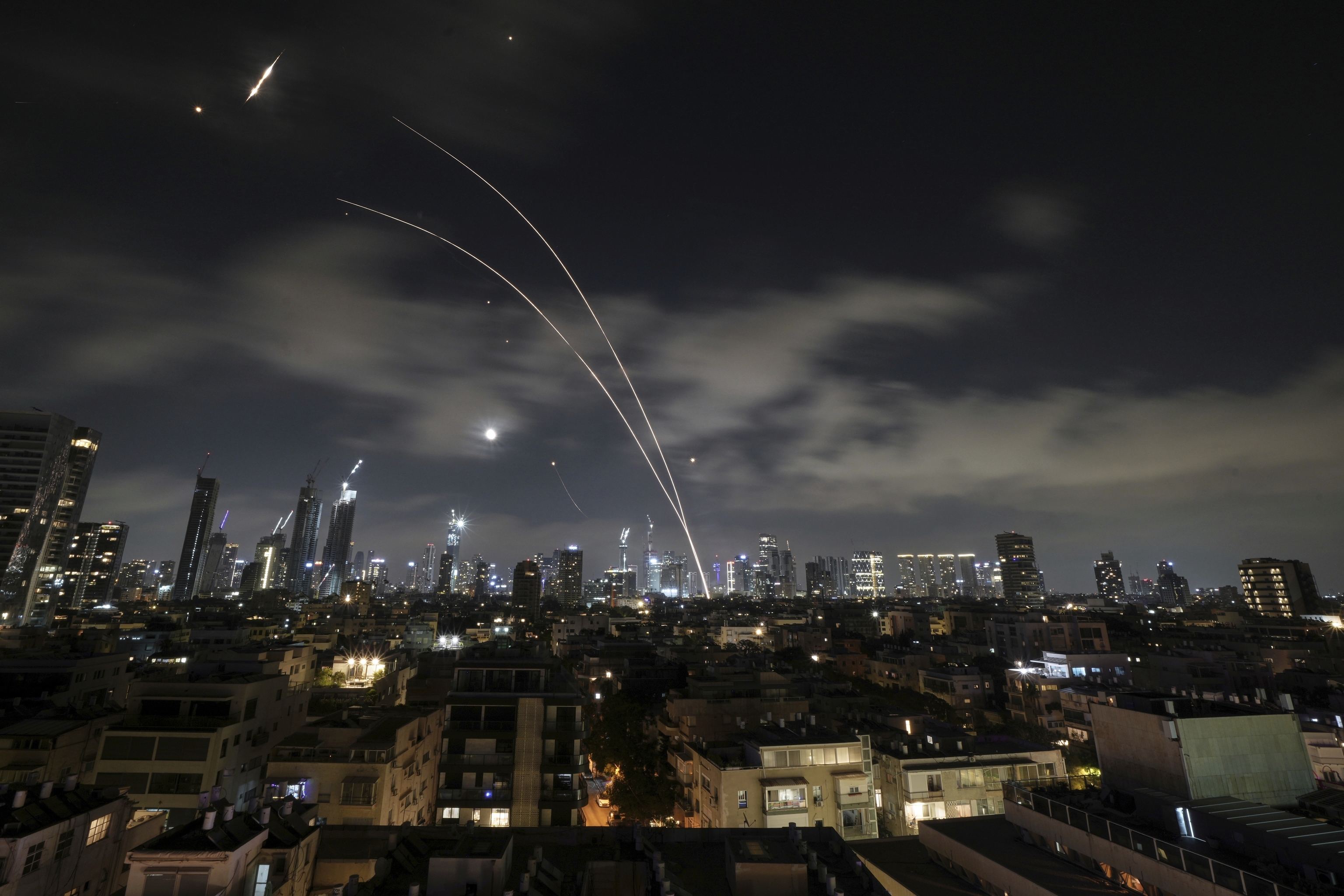In that January of 1990, journalists could witness from the terrace of the Hilton in Tel Aviv the impressive duel between the Patriots deployed by the US in the Israeli city and the Scuds launched by Saddam Hussein's regime.
The US had responded to the invasion of Kuwait by establishing an international alliance that attacked the Arab nation on January 16, 1991, the same day Hussein began firing his outdated missiles at Israel and Arab countries such as Saudi Arabia, Kuwait, or Bahrain.
The Iraqi autocrat had chemical weapons, and experts could not predict if he would be able to use them in his attacks. Israel began distributing gas masks, which became a recurring image among millions of locals. Many international media, especially CNN, contributed to fueling international unease when they began forcing their special envoys to cover the event in Israel with the white NBC protective chemical suits, popularized by Hollywood films.
The air raid sirens were an indication that generated absolute panic in the metropolis. Racing through deserted streets at full speed to find the impact site of the Scuds meant anticipating those same dystopian images that would be seen decades later, during the Covid crisis.
As The Jerusalem Post wrote this Sunday, the 39 Iraqi missiles - that is the figure provided by the newspaper - that fell on Israeli territory on that occasion left at least two civilians dead. "It was the first time since 1948 that Israeli cities were the target of a direct enemy attack" - the same newspaper had written in 2021 - and marked "an absolute change in the wars in which Israel would be involved in the Middle East", as from that moment on, conflicts would not be fought in the border regions of its territory with tanks and planes as had happened in 1956, 1967, and 1973, but in its main metropolises.
The current punishment that Tel Aviv is enduring is the most significant that the main city of Israel has had to face since the Egyptian air force bombed it during the 1948 war that led to the establishment of the Jewish state.
The Egyptians attacked that city repeatedly during the spring and summer of that year, starting with the bloody aerial assault on the town's bus station on May 18, which left 42 dead and dozens injured. The attacks were almost daily and left nearly 150 dead.
Before the creation of Israel, Tel Aviv had already counted dozens of deaths - around 200 - under the bombings of the Italian air force during World War II. The bloodiest day of these attacks was recorded on September 9, 1940, when fascist planes caused the death of 137 residents.
The first Gulf War changed all of Israel's military and political strategy, establishing a so-called Home Front dedicated to protecting the local population and enacting new regulations requiring new buildings in the country to include a reinforced room.
Furthermore, it marked the beginning of the Israeli "missile shield", which now consists of up to four different systems: Iron Dome, which aims to destroy shorter-range rockets; Arrow, designed to intercept ballistic missiles; David's Sling, which aims to prevent medium-range rockets; and Iron Beam, the most modern, which uses laser beams.
According to the Israeli army's estimate on Monday, this defensive umbrella has managed to intercept between 80 and 90% of Iranian rockets.
The analysis by The Jerusalem Post admitted that "a country cannot be hermetically sealed" and that there will always be missiles that penetrate the protection systems, but added with absolute logic: "There is a monumental difference between one, two, or even three missiles penetrating the defense shield, and 60 ballistic missiles, like those fired from Iran on Saturday night, being able to impact unhindered."
However, the logic of the columnist contrasts with that beginning to be expressed by some minority sectors of the Jewish state. "A people whose entire existence depends solely on military might is destined to end up in the darkest corners of destruction and, ultimately, in defeat," wrote Orly Noy, one of the directors of the Israeli human rights organization Btselem, in the publication 972 on Sunday.
The reasoning of the Israeli pacifist sector is not anchored in geopolitical dialectic or military statistics but in history. Zionism justified the creation of Israel under the assumption that it should be a "safe haven" for Jews from all over the world. The reality has been very different. Data shows that Israel is the country where more Jews have died violently since World War II. We are talking about tens of thousands, fallen in the recurring wars that the country has fought.
No one could claim that General Yitzhak Rabin was part of those pacifists, but he was one of the first leaders to understand the origin of the endless conflicts his country had to face: the occupation of Palestinian territories.
Israel had been established on most of the territory of the former British Mandate of Palestine, where Jews were a minority, without consulting that majority of the Palestinian population opposed to such a determination.
"We did not return to an empty land. The Palestinians were already here," Rabin admitted in the historic speech he gave to his country's parliament on October 5, 1995, after the Oslo Accords.
Rabin made it clear in that same message that he was not going to allow a Palestinian state, but at least he acknowledged that they should seek an agreement with the Palestinians.
"We can continue fighting. We can continue killing and continue dying. We can also try to stop this endless cycle of bloodshed and give peace a chance," he added.
The Jewish fundamentalism that promoted his assassination and his current main ally, Prime Minister Benjamin Netanyahu, have chosen to "keep fighting."
